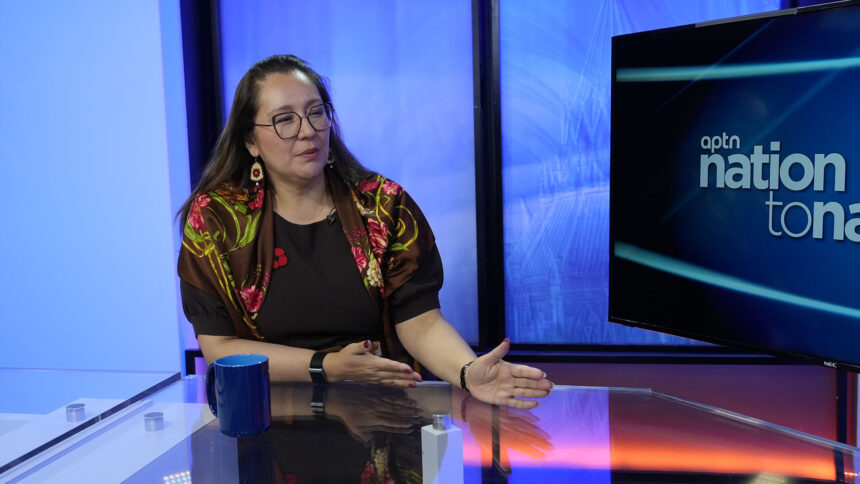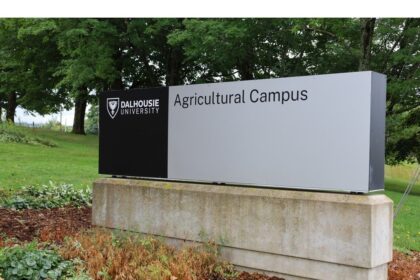Indigenous Services Minister Mandy Gull-Masty says the column of zeros under projections for years beyond 2026 in the federal budget that worried some Indigenous leaders doesn’t mean cuts to the department but reflects a shift in “program reform.” The 2025 federal budget shows no multi-year commitments beyond 2025–26 for several major initiatives, including First Nations elementary and secondary education, emergency response, urban programming for Indigenous people or non-insured health benefits. “A lot of people thought that these were cuts or these were zeros. It’s because of the program reform and the new direction that we’re going to take. We’re gonna identify what that’s going to look like in the future budget,” Gull-Masty told Nation to Nation. “ It doesn’t mean that we are not going to address those things. It just means, right now, our focus is on the three big take-aways… infrastructure, water, housing, those are huge spaces for Indigenous communities.” ‘This budget is going to make things worse’ For Assembly of First Nations (AFN) National Chief Cindy Woodhouse Nepinak, Budget 2025 falls billions of dollars short of what’s needed to close the infrastructure gap in First Nations communities. She said she was disappointed that only a handful of the AFN’s pre-budget priorities were addressed, despite the organization calling for nearly $363 billion in investments to meet the 2030 target. “ Provincial transfers for health, for education and social services have gone up by five per cent. The First Nations population grows at a much higher rate than that of Canada’s,” Woodhouse Nepinak told reporters the day following the budget. “So not investing to keep up is a step backwards. Instead of closing the socioeconomic gaps between First Nations and non-Indigenous Canadians, this budget is going to make things worse.” In response, Gull-Masty said she respects the AFN’s position and plans to work with First Nations leadership to review their proposals—saying those discussions could help shape future budgets. “ As a national chief, community wants you to go and get those things and be able to advocate and bring those things forward. But you have to look at the big picture too, right? We’re in a place where the government is looking to improve the management of their fiscal position,” said Gull-Masty. “I think that this is our opportunity to look at what they’ve submitted, identify the process, what is the rollout of that? What is the implementation of that? How can we really make that a concrete plan to address it in future budgets?” Budget 2025 allocates $2.3 billion over three years to continue efforts to end long-term boil water advisories in First Nations communities. It also promises $1 billion over four years for “dual use” infrastructure in the Arctic—projects intended to serve both communities and military needs. The Canada Infrastructure Bank has also been directed to increase its Indigenous infrastructure investment from $1 billion to $3 billion. As for housing, the budget did not offer any new funding—but the federal government chose to carry over unspent funds from previous years rather than claw them back. MMF says budget delivers economic opportunity despite lack of targetted spending While Budget 2025 didn’t direct spending specifically to Métis communities, the Manitoba Métis Federation (MMF) said it sees strong potential in the government’s broader economic development plan. “ We’re actually pleased with what came out of the government, um, budget presentation yesterday,” said Anita Campbell, minister of Finance for the MMF. Campbell said that although the budget doesn’t single out many initiatives specifically for Métis people, it outlines priorities—such as infrastructure, critical minerals, agriculture, and clean energy—that the Métis Nation is well-positioned to benefit from. “ Whether it’s infrastructure, whether it’s critical minerals, whether it’s agriculture, whether it has to do with environment and energy, I think those are areas that will play a role in the budget announcements made yesterday,” she said. “[The budget] doesn’t just point out what the benefits are going to be for the Métis citizens or the Métis people of this country. I think it’s more reflective of how the Métis people fit within what’s already being proposed in the budget.” Campbell added that many of the financial commitments in Budget 2025 were not new or unexpected, noting that the prime minister had already signalled his priorities for economic development. As a result, she said the MMF has been proactively building partnerships and identifying opportunities where Métis citizens can gain employment, start businesses, and benefit from upcoming projects. For example, Campbell said she is “extremely happy” that the federal government confirmed the Port of Churchill expansion is moving forward—a project she says will benefit many Red River Métis who live in the area, with additional spinoff business opportunities expected to follow. She also welcomed the reallocation of $2.8 billion for urban, rural, and northern Indigenous housing, noting the MMF has several “shovel-ready” projects prepared to take advantage of the funding. Gull-Masty noncommittal on Inuit Child First Initiative When she appeared on Nation to Nation in October, Gull-Masty identified Jordan’s Principle and child welfare reform as two key priority areas she had submitted to the prime minister for action. While Budget 2025 did not include new funding for Jordan’s Principle, Gull-Masty emphasized that the program was topped up with significant investments— $1 billion — since last fall’s economic statement. “Jordan’s Principle, it’s a huge undertaking,” she said. “I’ve spent my summer engaging, I’ve spent so much time speaking to the community, what they’re facing, what they’re impacting. So we will have further announcements.” Still, the lack of a clear renewal for the Inuit Child First Initiative in this year’s budget raised concern among Inuit leadership. In a press release, Inuit Tapiriit Kanatami (ITK) said it was “deeply concerned” the federal government had not signalled a renewal of the program. ITK did not respond to APTN’s request for an interview. Gull-Masty said children’s needs would be continued to be addressed, but did not say if it would be through a renewal of that specific program. “ The issues that those programs serve, continue to exist,” she said. “That means that we have to do more to hit the outcomes that we want in addressing those issues. So there are sunsets. “If there’s a program that has a deadline, we want community to be aware that those discussions—the importance of identifying what we want the outcomes to be—for me as a minister are the next critical discussion.” Continue Reading
ISC minister says column of zeros in budget are not cuts, but part of program reform

Leave a Comment









